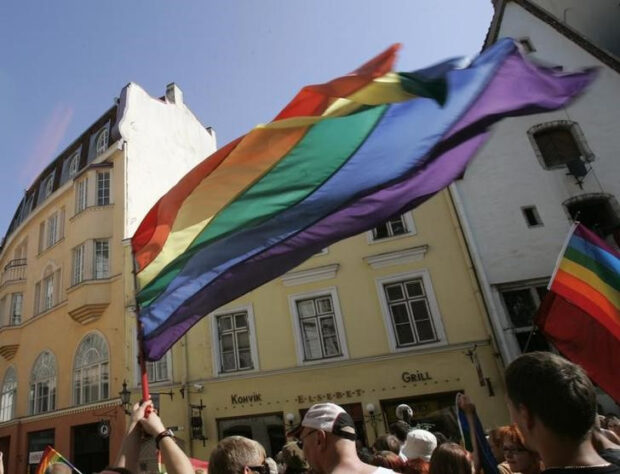
A reveller waves a rainbow-coloured flag during the Tallinn Pride 2007 festival procession in Tallinn, Estonia, August 11, 2007. REUTERS/Ints Kalnins
TALLINN — Estonia’s parliament approved on Tuesday a law to legalize same-sex marriage, making it the first central European country to do so.
Same-sex marriage is legal in much of western Europe but not in central European countries which were once under communist rule and members of the Moscow-led Warsaw Pact alliance but now members of NATO and, largely, the EU.
“It’s like the state is finally accepting me,” said Annely Lepamaa, 46, a lesbian.
“Until now, I needed to fight for everything. I had to go to court to adopt my own children, which is like, why?” she added. “Now, I’m a human with rights.”
The bill received 55 votes in the 101-seat parliament, from the coalition of liberal and social democratic parties which Kallas has assembled following her strong win in the 2023 election. “My message (to central Europe) is that it’s a difficult fight, but marriage and love is something that you have to promote,” Prime Minister Kaja Kallas told Reuters after the vote.
“We have developed a lot in those 30 years, since we have freed ourselves from the (Soviet) occupation. We are equals among same-value countries,” she added.
The law will come into effect from 2024.
In the largely secular Baltic country of 1.3 million, 53% of the population supported same-sex marriage in a 2023 poll by the Centre for Human Rights. A decade ago the number was 34%.
However, 38% of Estonians still consider homosexuality to be unacceptable. Same-sex marriage is opposed by the ethnic-Russian minority, which constitutes a quarter of the country, with only 40% of them supporting it.
Gay people in Estonia tend to remain discreet about their identity, and half have experienced harassment recently, according to government.
“This was a good opportunity for the government, because the public opinion on same-sex marriage has turned to positive, and after this year’s election it has the numbers to overcome the conservative opposition,” said Tomas Jermalavicius, Head of Studies at the International Centre for Defence and Security.
Latvia and Lithuania, the other two Baltic countries which were previously annexed by the Soviet Union, have same-sex partnership bills stuck in their parliaments.
Speaking to Reuters after the vote, Annely’s partner of six years Eeva Koplimets, 36, proposed they should get married.
“Yeah, we are switching (to marriage)! We made our decision on TV!,”, she said.

